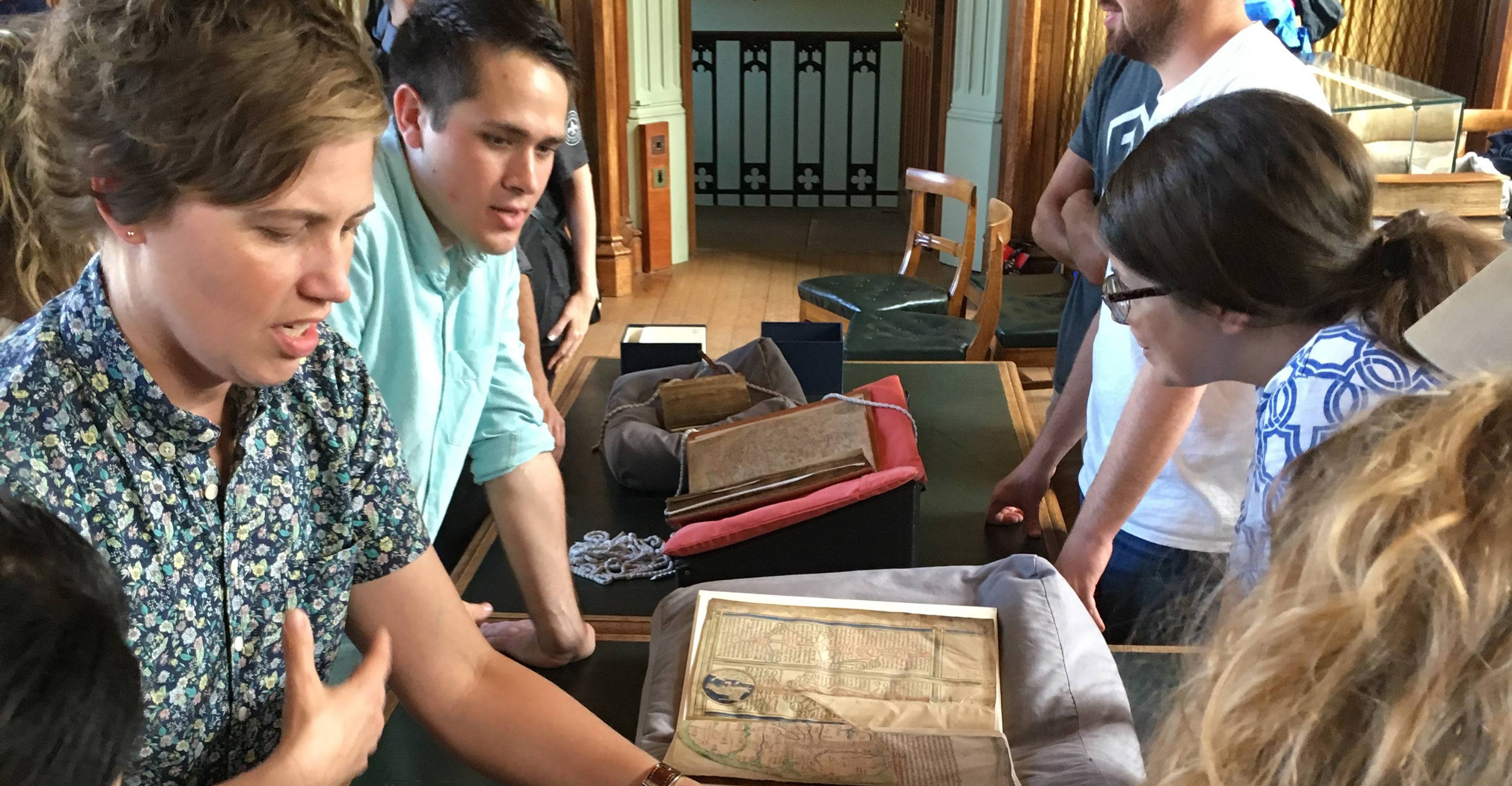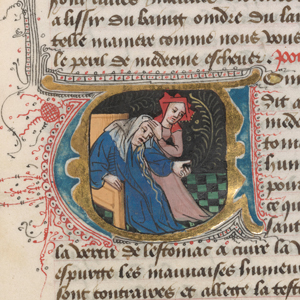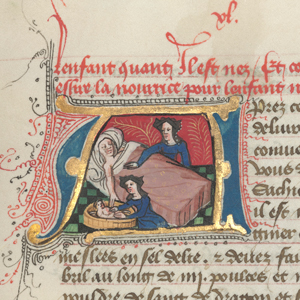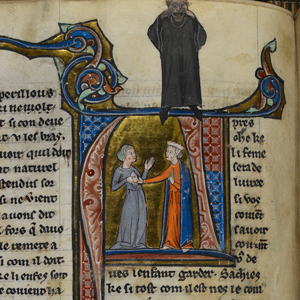
Borland wins prestigious award from the Society for Medieval Feminist Scholarship
Thursday, October 3, 2024
Media Contact: Elizabeth Gosney | CAS Marketing and Communications Manager | 405-744-7497 | egosney@okstate.edu
Dr. Jennifer Borland, director of Oklahoma State University’s Center for Humanities and a professor of art history in the Department of Art, Graphic Design and Art History, was recently awarded the Best First Book of Feminist Scholarship of the Middle Ages for her book, “Visualizing Household Health: Medieval Women, Art, and Knowledge in the Régime du corps.”
The award was presented by the national chapter of the Society for Medieval Feminist Scholarship, a group dedicated to recognizing individuals committed to feminist studies, specifically in the medieval period.
“The Society for Medieval Feminist Scholarship promotes the study of the Patristic Age, the Middle Ages and the early modern era from the perspective of gender studies, women's studies and feminist studies,” said Dr. Layla Seale, professor at the University of North Texas and a friend of Borland. “We actively promote and support interdisciplinary exchange at all levels of higher education across the world.”



“Visualizing Household Health” is Borland’s first published book and is considered a monograph, or a scholarly work that delves into a specific topic. It features images from a French health guide designed to promote and educate physicians on household practices.
“Essentially, the argument of the book is that we have these elite manuscripts, but they weren't just fancy books in people's collections,” Borland said. “The manuscripts provided content and information visually to help us understand how people were thinking about managing health in their households.
“The biggest takeaway is that women oversaw much of the household health management and care within the household. Many of the images depict women in caregiving roles, preparing food or engaging in other activities that contribute to someone's health.”
Borland’s text aims to illuminate the gender roles of women in the medieval period through the lens of art and illustration.
“I am grounding my argument in images and visual culture,” Borland said. “I'm arguing that images can reveal insights not necessarily evident in the accompanying text.”
The Best First Book of Feminist Scholarship of the Middle Ages award comes with a cash prize and recognition during the annual Society for Medieval Feminist Scholarship meeting at the International Congress on Medieval Studies at Western Michigan University in Kalamazoo.
“It’s gratifying for art history to be recognized as a field. It’s also meaningful because I believe feminist methodologies are crucial for how we conduct research and teach different ways of understanding the past,” Borland said. “All of those factors are significant, so receiving an award from them means a lot.”
Dr. Borland’s book is now available through Penn State University Press, JSTOR and book retailers.
Story By: Kierstin Pigg, graduate assistant | kierstin.pigg@okstate.edu
